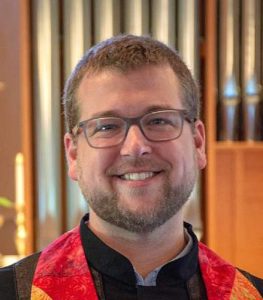 I’m finally going to admit this out loud: I’ve never really understood Martin Luther King Jr.’s teaching on the “inescapable network of mutuality.” Given my appreciation for the source of this idea, I have given it the benefit of the doubt. I could even articulate a vague philosophy of interdependency in human relationships and in nature.
I’m finally going to admit this out loud: I’ve never really understood Martin Luther King Jr.’s teaching on the “inescapable network of mutuality.” Given my appreciation for the source of this idea, I have given it the benefit of the doubt. I could even articulate a vague philosophy of interdependency in human relationships and in nature.
“Justice will not be guaranteed to me until we have built a culture ensuring justice for everyone.”
But I confess this concept has always rung hollow to me. I believed in helping those who were suffering and in fighting for justice, but this came from a conviction about right and wrong, not a sense that it was somehow my own liberation I was fighting for.
King’s well-known quote from Why We Can’t Wait, published in 1964, is this:
“We are caught in an inescapable network of mutuality, tied in a single garment of destiny. Whatever affects one directly, affects all indirectly.”
I’ve never gotten exactly how we are “tied in a single garment of destiny” or how “whatever affects one directly, affects all indirectly.” The truth is, because of my socioeconomic strata, gender and race, I’ve always experienced a relative sense of immunity from much of the suffering of the most vulnerable in the world. That’s a privileged attitude, and I know it. It took a global pandemic to slap me in the face and show me how I was wrong.
Maybe you were like me in the early stage of the COVID-19 crisis. With fear threatening to paralyze you, you comforted yourself by saying things like this:
Well, I’m not over 65, so I’m not really at risk. It won’t affect me any more than the flu.
Or maybe: I have health insurance, so I’ll be okay.
Or: I can work from home; this won’t be so bad for me.
It’s not that you don’t care or that you wouldn’t take seriously guidelines intended to protect others. But the pandemic wouldn’t really affect you directly, right?
That’s what I kept telling myself. The truth was, though, I couldn’t seem to shake just how fragile those assumptions of security were.
I’m not over 65 … yet. But one day I will be, and who will take my plight seriously then?
I have health insurance … for now. But what happens if I can no longer afford it or if my place of employment can no longer offer it? What if the stock market tanks for an extended period and my safety net evaporates? Who will speak out to be sure I can get the healthcare I need?
I have a job that allows me to work from home … right now. But what happens if the church I serve has to close its doors permanently and I have to find a different job that can’t be done from home? Who will fight for my safety then?
Realizing the illusion of my security brought to mind German theologian and pastor Martin Niemöller’s famous words on display at the New England Holocaust Memorial in Boston:
“First they came for the socialists, and I did not speak out – because I was not a socialist.
Then they came for the trade unionists, and I did not speak out – because I was not a trade unionist.
Then they came for the Jews, and I did not speak out – because I was not a Jew.
Then they came for me – and there was no one left to speak for me.”
I realized that, like the assumption that I was not in a vulnerable demographic, I also assumed I could hide behind my privilege in the predominant “us” and “them” narrative in American culture. I’m part of the “us” and while I should be concerned about “them” and help however possible, I am more or less immune from the suffering of God’s children Jesus called “the least of these.”
“It took a global pandemic to slap me in the face and show me how I was wrong.”
Still, like my presumed safety from the novel coronavirus, I’m finding I can’t shake just how fragile this assumption of security actually is. How quickly could those lines between “us” and “them” shift? How quickly could a disaster or a compelling narrative alter the map until suddenly I am a “them,” wishing desperately that someone would speak for my protection, justice and liberation?
I realized for the first time this truth: Justice will not be guaranteed to me until we have built a culture ensuring justice for everyone. My own welfare can only be found in the welfare of my most vulnerable neighbor.
Prophets have been saying this for millennia. Now I see it, and there is no un-seeing it.
No matter what happens next, there is no un-seeing that “single garment of destiny” in which I am tied or the “network of mutuality” in which I am caught.
None of us is safe until ALL of us are safe.
Lord, have mercy.
Read more BNG news and opinion on this topic:
#intimeslikethese
